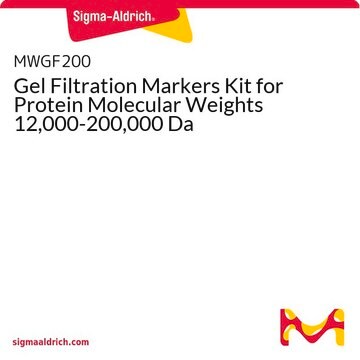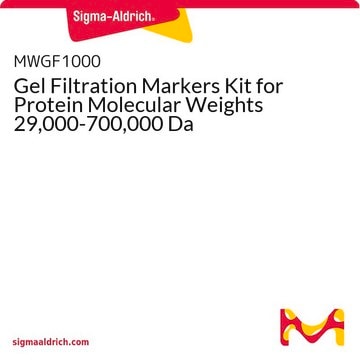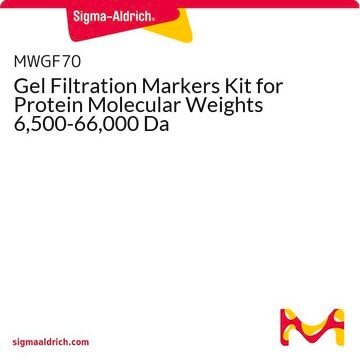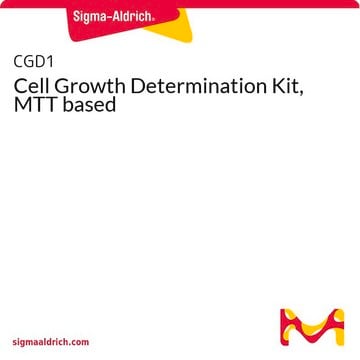D5751
Blue Dextran
Void volume marker for gel filtration columns.
Synonym(s):
Dextran blue from Leuconostoc mesenteroides
About This Item
Recommended Products
biological source
non-animal source
form
powder
quality
200
mol wt
2,000,000
technique(s)
affinity chromatography: suitable
suitability
suitable for GFC marker
Looking for similar products? Visit Product Comparison Guide
General description
Application
Preparation Note
Analysis Note
Storage Class Code
11 - Combustible Solids
WGK
WGK 3
Flash Point(F)
Not applicable
Flash Point(C)
Not applicable
Personal Protective Equipment
Certificates of Analysis (COA)
Search for Certificates of Analysis (COA) by entering the products Lot/Batch Number. Lot and Batch Numbers can be found on a product’s label following the words ‘Lot’ or ‘Batch’.
Already Own This Product?
Find documentation for the products that you have recently purchased in the Document Library.
Customers Also Viewed
Protocols
Uncover how HPLC analysis of glycans helps researchers analyze glycan structures and glycoforms & find products to assist in your glycan analysis methods.
Our team of scientists has experience in all areas of research including Life Science, Material Science, Chemical Synthesis, Chromatography, Analytical and many others.
Contact Technical Service





